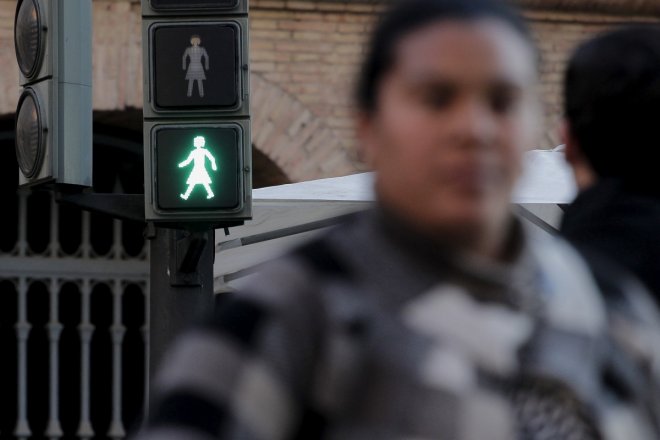
Melbourne has installed "female" pedestrian traffic signals as part of a gender equality campaign promotion to combat and reduce "unconscious bias" on International Women's Day on Wednesday.
"The idea behind this equal crossings initiative ... is to promote gender equality and reduce unconscious bias through changing some of the iconography we see every day," Martine Letts from advocacy group The Committee of Melbourne, told the Australian Broadcasting Corporation.
"The aim is to move towards one-to-one male and female representation across the state of Victoria."
Ten stop/go lights depicting pedestrian figures dressed in skirts were being installed on traffic lights at one of the city's busiest intersections on Tuesday, a day before International Women's Day. However, this move met with a mixed response and many have even questioned the point of the 12-month trial.
"I like to think of Melbourne's new traffic lights as little green men in drag," tweeted Thomas John Jaspers.
Fiona Richardson, Victoria state's Minister for Women, supported the move and said that it would make public space more inclusive of women.
"There are many small - but symbolically significant - ways that women are excluded from public space," she said in a statement.
She added: "A culture of sexism is made up of very small issues, like how the default pedestrian crossings use a male figure, and large issues such as the rate of family violence facing women. We are a government working towards gender equality for all women."
Meanwhile, Melbourne Mayor Robert Doyle questioned the value of the initiative. "I'm all for doing anything we can for gender equity, but really?" Doyle told the reporters. "Unfortunately I think this sort of costly exercise is more likely to bring derision rather than support to what is a very important issue," he added.
According to reports, it costs an average of $8,400 to change six traffic lights. Richardson insisted that no taxpayer money was spent on the trial that was organised by the Committee for Melbourne. The money was jointly paid by the Committee for Melbourne and Bayswater company Camlex Electrical.
The move has also split opinion on social media, with one tweeting that it was "feminism at its worst".








